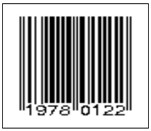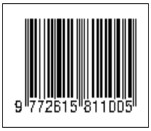PENGGUNAAN BAHAN TAMBAHAN PANGAN (BTP) PADA IBU RUMAH TANGGA DI KELURAHAN PEJANGGIK KOTA MATARAM
Abstract
Keywords
Full Text:
PDFReferences
Cahyadi, Wisnu (2008). Analisis dan Aspek Kesehatan Bahan Tambahan Pangan. Jakarta:Bumi Aksara
Fajar, Ibnu. (2004). Jurnal Kesehatan. Malang: Poltekkes Malang
Julaeha, L., Nurhayati, Mahmudatuss. (2016). Penerapan Pengetahuan Bahan Tambahan Pangan pada Pemilihan Makanan Jajanan Mahasiswa Pendidikan Tata Boga UPI. Bandung : Media Pendidikan, Gizi dan Kuliner. Vol. 5, No.1:17-25
Khairi, A.N., Juwitaningtias, T., Narwanti, I.N. (2020). Analisis Penggunaan Bahan Tambahan Pangan (BTP) Ibu Rumah Tangga di Yogyakarta dalam Aspek Perilaku, Sikap, dan Pengetahuan. Yogyakarta : Journal of Halal Sciences and Research, Vol. 1 No. 1 : 21 – 29
Melati, A. (2014). Hubungan Pengetahuan Ibu dan Ketersediaan Pangan dengan Status Gizi Balita di Kelurahan Kurao Pagang Kecamatan Nanggalo Tahun 2014. Padang : Politeknik Kesehatan Kemenkes Padang
Notoatmodjo, Soekidjo. (2012). Ilmu Kesehatan Masyarakat. Jakarta : PT. Rineka Cipta.
Oktaningrum, I., Komariah, K. (2019). Hubungan Pengetahuan dan Sikap Ibu dalam Pemberian Makanan Sehat Dengan Status Gizi Anak di Sd Negeri 1 Beteng Kabupaten Magelang Jawa Tengah. Journal of Culinary Education and Technology. Voi. 8, No.1
Peraturan Badan Pengawas Obat dan Makanan (BPOM) No. 11 Tahun 2019 Tentang Bahan Tambahan Pangan. Jakarta : Badan Pengawas Obat dan Makanan
Peraturan Menteri Kesehatan Republik Indonesia Nomor 033 Tahun 2012 Tentang Bahan Tambahan Pangan. Menteri Kesehatan Republik Indonesia.
Siregar, S. (2013). Metode Penelitian Kuantitatif Dilengkapi Dengan Perbandingan Perhitungan Manual Dan SPSS. Jakarta:Kencana
Sugiyono (2004). Metode Penelitian Bisnis. Bandung(ID):Alfabeta.
Suhardjo (2018). Perencanaan Pangan dan Gizi. 1 cetakan. Jakarta: Bumi Aksara
Suparmi, Desanti, O.I. (2016). Hubungan Pengetahuan, Sikap, dan Perilaku Ibu tentang Penggunaan Pewarna Makanan dengan Keracunan Makanan pada Anak di Kelurahan Penggaron Lor Semarang. MKB, Volume 48 No. 4:187-193.
DOI: https://doi.org/10.35327/gara.v17i2.462
Refbacks
- There are currently no refbacks.
Copyright (c) 2023 GANEC SWARA

This work is licensed under a Creative Commons Attribution-ShareAlike 4.0 International License.










